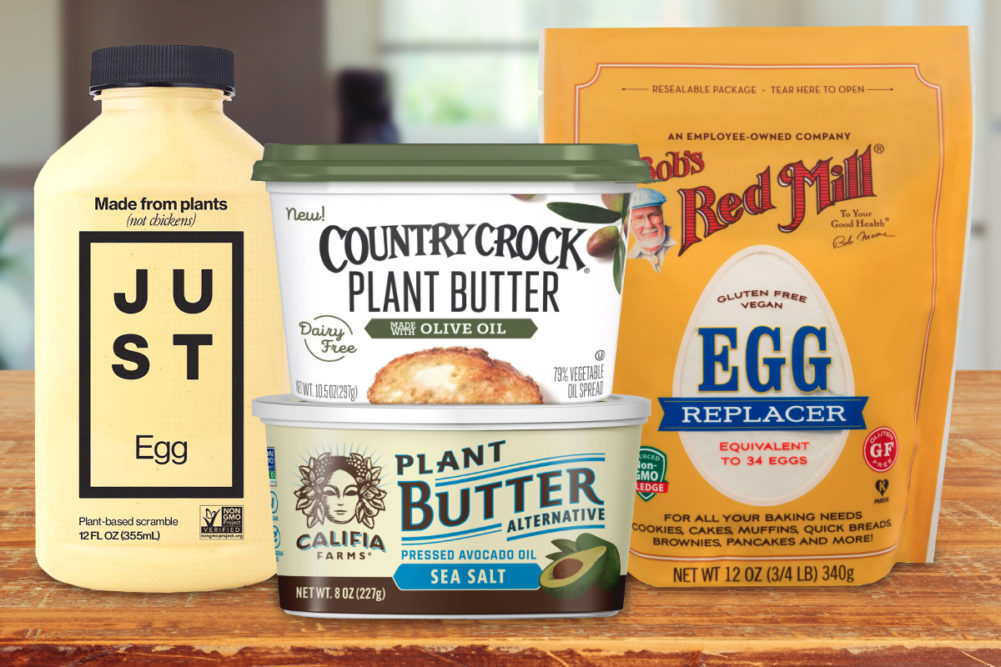NEW YORK — Already a lively subculture, WGSN expects the audience for vegan baking to continue growing in 2021, fueled by concerns about animal welfare, environmental issues and better ingredients.
The Ascential-owned trend forecasting company examined data from social media and online retail sales and found social media conversations around baking increased 12% in 2020. Conversations around vegan baking jumped 35%.
“So many more people started baking in general because of pandemic lockdowns and wanting to bring comfort into their lives,” said Kara Nielsen, director of WGSN’s food and beverage platform. “There have been a lot of reasons why this was a great year to look at vegan baking.”
Consumers are seeking inspiration from plant-based recipe sites and social media influencers. Popular recipes include cakes, banana bread, cupcakes, and seasonal desserts featuring ingredients like vegan chocolate, coconut oil, vegetable spreads and oat and nut milk.
“We’re seeing lots of recipes and tips for helping home consumers who are befuddled learn how to use these ingredients,” Ms. Nielsen said.
Influencers also are using natural, less processed ingredients like coconut sugar and dates for sweetness, nut butters as binders and flax and chia seeds rehydrated for moisture. The recipes often overlap with gluten-free, grain-free, keto, paleo and other specialty diets, bringing more consumers into the vegan baking fold.
Brands may look to those ground level innovators for inspiration.
“We project brands will start using more dairy alternatives, like what home baking influencers are doing,” Ms. Nielsen said. “We expect more oat milk to be used as a beacon ingredient in recipes and in packaged goods.”
The rise of new plant butter alternatives made from nuts or oats has helped support more vegan baking at home. Upfield US, Inc. in 2019 launched a Country Crock plant butter made with almond oil that is promoted for baking, and the company recently introduced its Flora Plant Butter in the United States. Califia Farms offers plant butters made with olive oil and avocado oil, and Kite Hill offers a plant butter made with almond milk.
“Plant butters and vegetable shortening and margarines geared for a new lifestyle already are mainstream, and they’re being designed to be more appropriate for baking,” Ms. Nielsen said. “Big baking companies are talking about this and offering recipes for people to make their products with these vegan items.”
Egg alternatives also are creating opportunities for home bakers. Early adopters include natural and specialty brands like Eat Just, Inc., maker of animal-free egg alternatives. Bob’s Red Mill offers a gluten-free vegan egg alternative made with potato starch and tapioca flour. UK-based OGGS offers aquafaba, a liquid egg substitute made with chickpea cooking liquid.
“Egg alternatives as industrial ingredients are going to be really powerful because we already know how to bake with vegetable shortening,” Ms. Nielsen said. “The cheaper bakery items are made with vegetable shortening, so it will be interesting to see if there will be a switch and a premium put on things made with vegetables.”
Trend-forward retailers as well as specialty and natural brands have begun keying into the vegan baking trend with prepared and frozen treats, she said. And while vegan products represent a small share of the overall baked foods category, WGSN expects more options will hit shelves as the trend moves beyond the kitchen.
“Vegan baking is something more people are embracing at home for themselves,” Ms. Nielsen said. “That is part of this continuation of our kitchen skills that many people learned and grew more comfortable with last year. I think the players that stand to benefit the most, at least in the first part of 2021, are the ingredients that go into vegan baking. That will eventually hit the bakery aisle, and it also will hit the doughs that you see in the freezer case.”






